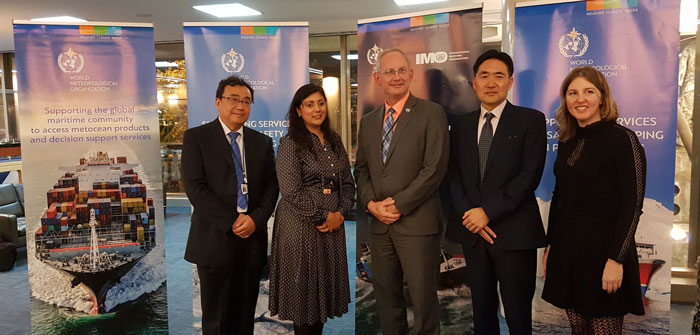The World Meteorological Organization (WMO) has joined forces with the maritime industry to address the impact of extreme weather at sea. The meteorological body held its first ever joint symposium with the International Maritime Organisation (IMO), which regulates shipping, late last month.
The ‘International Symposium on Extreme Maritime Weather – Towards Safety of Life at Sea and a Sustainable Blue Economy’ was held at the London headquarters of the IMO and attended by representatives from the shipping industry, offshore industry, ports and harbors, coast guards, insurance providers as well as maritime forecasters.
The so-called ‘blue economy’ is estimated to generate between US$3trn and US6trn annually, accounting for 70% of world trade and providing jobs for over six billion people. However, economic loss due to extreme weather conditions at sea runs to millions of dollars each year, to say nothing of the thousands of lives lost.
The types of extreme maritime weather that are most perilous include: high winds, large waves, fog, thunderstorms, sea ice, freezing spray and volcanic ash.
The problem is being exacerbated by climate change said Nusrat Ghani, UK Parliamentary Under-Secretary in the Department of Transport, who stressed the need for better dialog between shipping communities and maritime forecasters.
A good example of this was offered by John Parker, of Environment and Climate Change Canada, who said they were working together with Canadian Inuit communities to examine “how Inuit weather and sea-ice forecasting knowledge combined with Western monitoring and modeling techniques could lead to better Arctic forecasts to meet local decision-making needs”.
The symposium also heard how maritime forecasting is being hampered by a lack of observation data, with only 2,500 out of the roughly 80,000 ships involved in international trade voluntarily providing meteorological data.
In response to this deficit the WMO identified best practices for greater collection and sharing of ship observations as well as for safety and risk reduction, emergency response and sustainable shipping practices.
In an opening video address, Peter Thomson, UN special envoy for the ocean, noted that the value of cargo lost due to extreme weather is “simply vast” and that “most of these tragedies could have been avoided if better information, communication and preparedness measures had been available”.



